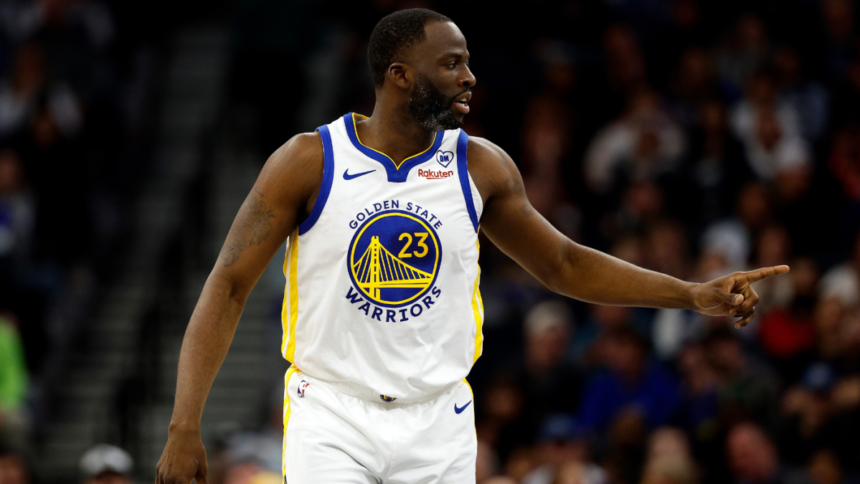But Green is apparently unsatisfied with the financial opportunities afforded by the NBA, because in his mind, they take too much of that wealth back. On an appearance on The Big Podcast with fellow NBA legend Shaquille O’Neal, Green railed against the financial element of NBA discipline.
“The fines to me don’t make sense,” Green said. “When you talk about, as hard as we work to accumulate wealth, coming from situations that most people never make it out of, and then you get fined the way that we get fined? It’s actually not set up for us to be wealthy after we’re done playing.
“This job is not set up, the way we’re taxed. The way we’re fined. You know, you hear about all of these programs, like this program this, this program, that s*** is to cover everybody else. This program is to teach this guy this. But if I do something wrong, I lose $100,000. Man, it took my mom four years when I was growing up to make $100,000. And I lose that in a night because, what? The referee got mad at me, and he didn’t like what I said to him, so I lose $5,000 like that, on a tech?”
Green’s point needs to be broken down into its components. He actually does have a point when it comes to taxes. Athletes are subject to a “jock tax,” which essentially means that they have to pay taxes in all of the states that they play road games in because they are earning income there. When you factor in how much money athletes make, it obviously stands to reason that they owe a considerable amount in taxes. Of course, it’s worth noting that those taxes are coming out of already considerable earnings, so most athletes still have quite a bit of take home pay.
Green’s argument falls off the rails when he turns to fines. Let’s look at his career, specifically. Spotrac lists every fine and suspension that a player faces in their career and includes the dollar amount that came with the discipline. It estimates that Green has been fined roughly $900,000 in his NBA career, and suspensions have cost him around $3.2 million. That’s a lot of money for most people.
Still, it really shouldn’t be preventing someone from accumulating wealth when their contracts are paying them a career total of $255 million. In reality, Green has likely earned a good deal more. He is a star athlete playing in a big market that has only increased his profile through his media work. Aside from endorsement earnings, he is also well-positioned to make money as an investor in the Bay Area’s tech industry, and even when he retires, his image and that media work should continue to help him earn money. In short, the NBA has absolutely positioned Green to become and remain wealthy.
But then of course, there’s the far simpler fact that most players do not get disciplined as often as Draymond Green does. The majority of players will go their entire careers without ever getting fined for anything aside from technical fouls, which carry a fixed and relatively small fine ($2,000 for the first five in a given season, $3,000 for the next five, $4,000 for the next five and $5,000 for all subsequent fines). Obviously no player wants to pay thousands of dollars for subjective technical fouls, but the league minimum salary this season was $1.1 million. It’s a relatively small piece of their pie.
The idea behind fining a player for transgressions ultimately ties back to the health of the league. There are certain things that the league does not want players to do on the court, and while the cash value applied to such things is subjective, it ultimately does not want players doing those things because it is worried about how they would affect the league’s relationships with fans and sponsors, which is where all league revenue comes from. Green happens to do those things more often than most players, and it’s hard to argue that he shouldn’t get fined for them. Putting Rudy Gobert in a chokehold is not the image that the league wants to present to the world. Green may not like having to pay these fines, but he’s certainly earned them.
Professional athletes often do face financial issues after they retire. It’s such a common occurrence that ESPN produced a 30 for 30 documentary on the topic in 2012. The reasons why are nuanced, and you could argue that leagues didn’t do enough in the past to help prevent that from happening. But if you were going to list all of the reasons these financial issues arise, league-issued fines would be at the bottom. Despite the money Green has lost to suspensions and fines, he is almost certainly going to retire one day as a very wealthy man.











